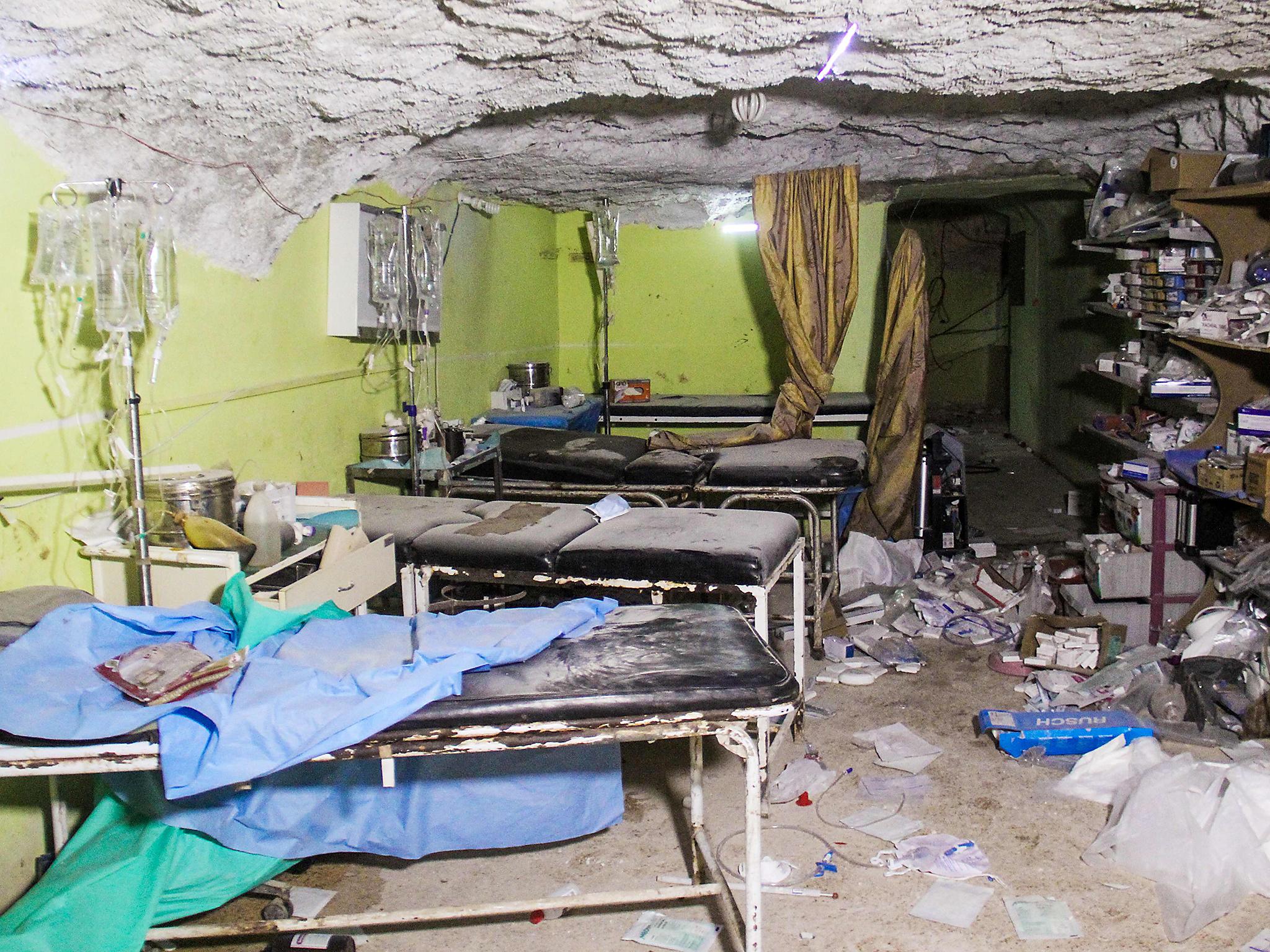Syria chemical attack: ‘incontrovertible evidence’ sarin gas used, OPCW says
Several Western intelligence services believe the chemical incident in Khan Sheikhoun which killed 86 people was carried out by President Bashar al-Assad’s forces

Your support helps us to tell the story
From reproductive rights to climate change to Big Tech, The Independent is on the ground when the story is developing. Whether it's investigating the financials of Elon Musk's pro-Trump PAC or producing our latest documentary, 'The A Word', which shines a light on the American women fighting for reproductive rights, we know how important it is to parse out the facts from the messaging.
At such a critical moment in US history, we need reporters on the ground. Your donation allows us to keep sending journalists to speak to both sides of the story.
The Independent is trusted by Americans across the entire political spectrum. And unlike many other quality news outlets, we choose not to lock Americans out of our reporting and analysis with paywalls. We believe quality journalism should be available to everyone, paid for by those who can afford it.
Your support makes all the difference.“Incontrovertible” test results show that sarin gas or a chemically similar substance to the nerve agent was used in an incident which killed 86 people in a Syrian village earlier this month, the Organisation for the Prohibition of Chemical Weapons (OPCW) has said.
Sarin is a nerve agent banned under international law which attacks the body’s central nervous system and causes nausea, difficulty breathing, blurred vision and loss of control of bodily functions.
Ahmet Uzumcu, the head of the OPCW, said in a statement on Wednesday that analysis of the bodies of three victims and seven survivors at four different laboratories indicated exposure to either sarin or a “sarin-like substance”.
“While further details of the laboratory analyses will follow, the analytical results already obtained are incontrovertible,“ Mr Uzumcu said.
Earlier testing on victims’ bodies by British scientists and the Turkish Health Ministry found evidence of exposure to both sarin and chlorine gas, which most of the international community believes occurred during a deliberate attack on the rebel-held village by the Syrian regime.
Damascus, along with its Russian and Iranian allies, has said that the 4 April casualties were caused when a conventional air strike on an al-Qaeda weapons depot nearby caused an explosion, releasing the deadly gases.
Bashar al-Assad, the Syrian President, has repeatedly denied his government has any chemical weapons stocks after surrendering its chemical arsenal to an international watchdog in 2013 after the deaths of hundreds from sarin exposure in a rebel-held suburb of Damascus in 2013.
The opposition, however, has long accused the regime of holding back some of its supply.
OPCW has said it believes Mr Assad’s government is responsible for at least two chemical weapons attacks that have occurred in Syria since then – claims the President also denies.
On Wednesday Jean-Marc Ayrault, the French foreign minister, said that his country’s intelligence services have “proof” that the Syrian government was behind the alleged chemical weapons attack on a rebel village earlier this month.
“There is an investigation underway. It’s a question of days and we will provide proof that the regime carried out these strikes,” Ayrault told LCP, the French parliamentary channel.
The US responded to the alleged attack by launching “warning shot” air strikes on a regime-controlled air base near Homs a few days later, which killed six Syrian servicemen. The offensive is to date the only direct action the US has taken against Mr Assad’s regime in more than six years of war.
The Syrian president has said that he will allow an “impartial” investigation into the 4 April incident as long as it is carried out by “unbiased countries” without a political agenda.
Mr Uzumcu said an OPCW fact-finding mission was ready to deploy to Syria if the security situation meant it was possible.
His team was continuing to conduct interviews and collect samples related to the attack, he added
Join our commenting forum
Join thought-provoking conversations, follow other Independent readers and see their replies
Comments